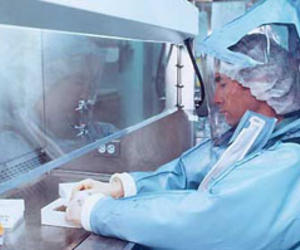Cuba lifts lung-cancer care with vaccine
- Submitted by: manso
- Society
- 01 / 16 / 2011

Sunday, Jan. 16, 2011. By CESAR CHELALA. NEW YORK — Cuba's announcement that its scientists have developed a vaccine to improve the lives of lung-cancer patients is reason for optimism. Cautious optimism is in order, though, since previous claims have been made before by several scientists in dealing with this disease — claims that later proved unfounded.
In 1991 I headed a U.N. mission to Cuba of Latin American physicians. We were asked to evaluate Cuba's production of interferon, an anti-viral substance, and its applications. We were gladly surprised at the excellent technical level attained by Cuban scientists and the progress they had made in producing interferon.
During a visit to our group, Fidel Castro showed considerable enthusiasm for Cuba's advances in public health projects. So, the reported advances on a lung-cancer vaccine did not surprise me. Since the late 1980s, following visits by doctors from M.D. Anderson Cancer Center in Houston to Havana, the Cuban government had chosen biotechnology as a priority area for development.
Lung cancer is the most common fatal cancer in both women and men throughout the world. It is estimated that lung cancer causes the deaths of more than 1 million people a year worldwide. According to statistics provided by the U.S. National Cancer Institute, approximately one of every 14 men and women in the U.S. will be diagnosed with lung cancer at some point in their lives.
Until now, treatment of lung cancer involved surgical removal of the cancer, chemotherapy or radiation therapy, as well as a combination of these procedures. The decision on which treatment to choose depends on the location and extent of the tumor as well as the overall health status of the patient.
Cuba's biotechnology industry plans to launch the vaccine, developed by Cuban scientists, in the international market in the near future.
Dr. Gisela Gonzalez, head of the team that researched and developed the vaccine, cautions that it is not a miracle drug, although it provides relief in treating terminally ill patients, with fewer side effects than conventional treatments.
The vaccine, called CimaVax-EGF, consists of a protein, the Epidermal Growth Factor (EGF), linked to another protein that stimulates the patient's immune system to develop the desired immune response against EGF.
Normally, when EGF binds to a receptor on the cell membrane, it triggers the cell-proliferation mechanism, which increases in the case of tumors. Following administration of the vaccine, patients produce antibodies that recognize and specifically bind to EGF, stopping it from binding to a receptor and beginning cell proliferation. The consequence is a decrease in tumor growth, the extent of which varies according to the patient's individual response.
According to Dr. Gonzalez, this is the first vaccine against cancer to be registered anywhere in the world. CimaVax-EGF has already been patented in Cuba, Peru, Canada, Japan, South Africa and the United States, and there are plans to patent it in other countries. In addition, the vaccine has undergone several clinical trials in Cuba, Canada and the United Kingdom, and plans are under way to try it also in China and the U.S.
The vaccine is promising. If larger trials confirm the initial findings, an important milestone against lung cancer will be achieved.
Cesar Chelala, M.D. and Ph.D., is an international public health consultant.
Fuente: http://search.japantimes.co.jp/rss/eo20110116cc.html
Comments